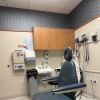Kidney Function Tests and Their Link to Heart Health: What You Need to Know
Kidney function and heart health are closely intertwined, but many people are unaware of how their kidney health affects their cardiovascular system. In this article, we’ll explore kidney function tests, their significance, and the crucial link between kidney health and heart disease. Understanding these connections could not only help detect early signs of health issues but also guide better lifestyle choices to support both organs.
- 1. Understanding Kidney Function Tests
- 2. How Kidney Disease Impacts Heart Health
- 3. The Importance of Monitoring Kidney Health
- 4. Preventing Heart Disease Through Kidney Care
- 5. Key Tests to Measure Kidney Function
1. Understanding Kidney Function Tests
Kidney function tests are vital tools for assessing how well your kidneys are working and whether any issues exist. The most common tests include:
- Blood Urea Nitrogen (BUN) Test: This measures the amount of urea nitrogen in the blood, a waste product filtered out by the kidneys. High levels can indicate kidney dysfunction.
- Serum Creatinine Test: Creatinine is a waste product produced by muscles. If your kidneys are not functioning properly, creatinine levels in the blood increase.
- Glomerular Filtration Rate (GFR): GFR is a calculation based on your age, gender, race, and serum creatinine level. It shows how well your kidneys are filtering waste from your blood.
- Urinalysis: This test looks for protein, blood, or other abnormalities in the urine, which can signal kidney damage.
These tests help doctors assess kidney function and detect any early signs of kidney disease, which is crucial for preventing further complications, including heart disease.

2. How Kidney Disease Impacts Heart Health
The kidneys and heart have a symbiotic relationship. When kidney function is impaired, it can lead to various cardiovascular issues. Here are some ways kidney disease can impact heart health:
- High Blood Pressure: Kidney dysfunction can cause fluid retention, leading to increased blood pressure. High blood pressure is a significant risk factor for heart disease.
- Electrolyte Imbalance: The kidneys regulate vital minerals like sodium, potassium, and calcium. When kidney function declines, it can cause an imbalance in these electrolytes, affecting heart rhythm and function.
- Increased Risk of Heart Attack and Stroke: Chronic kidney disease (CKD) can accelerate the development of atherosclerosis (hardening of the arteries), increasing the risk of heart attack and stroke.
- Fluid Overload: When the kidneys can’t properly filter excess fluid, it can accumulate in the body and strain the heart, leading to heart failure.
As you can see, kidney disease can significantly increase the risk of developing heart problems. Therefore, monitoring kidney health is an essential aspect of overall cardiovascular health.
Capital Health Medical Center – Hopewell
capital health medical center hopewell
1 Capital Way, Pennington, NJ 08534, USA

3. The Importance of Monitoring Kidney Health
Regular kidney function tests are crucial for detecting kidney disease early, especially for individuals at higher risk, such as those with diabetes, high blood pressure, or a family history of kidney disease. Early detection allows for prompt treatment, which can help prevent or delay the progression of kidney disease and reduce the risk of heart-related complications.
For people with existing heart disease, monitoring kidney health is equally important. If the kidneys are not functioning optimally, it can exacerbate heart problems, leading to a cycle of worsening health. By keeping track of kidney health, individuals can take proactive steps to manage both conditions effectively.
4. Preventing Heart Disease Through Kidney Care
Taking care of your kidneys is an essential part of maintaining heart health. Here are some steps to protect both organs:
- Maintain a healthy diet: A diet low in salt, processed foods, and saturated fats can help protect both your kidneys and your heart.
- Exercise regularly: Physical activity helps manage blood pressure, cholesterol levels, and weight—all crucial factors for both kidney and heart health.
- Manage chronic conditions: Control diabetes, high blood pressure, and other health conditions that put strain on both your kidneys and heart.
- Stay hydrated: Drinking plenty of water is essential for kidney function and helps prevent kidney stones and other complications.
By following these preventive measures, you can reduce the risk of developing kidney disease and heart problems simultaneously, leading to a healthier, longer life.
5. Key Tests to Measure Kidney Function
To accurately assess kidney health and its impact on heart health, several key tests should be conducted regularly. These include:
- Serum Creatinine Test – Helps evaluate how well your kidneys are filtering waste.
- Glomerular Filtration Rate (GFR) – A key indicator of kidney function.
- Urinalysis – Detects abnormalities that can indicate kidney damage.
- Electrolyte Panels – Measures vital minerals in the blood, which can indicate kidney dysfunction.
Having these tests done routinely, especially if you're at risk, can help catch potential problems early and guide proper treatment to protect both your kidneys and heart.
For more information on kidney health and heart disease prevention, visit HeartCare Hub for expert advice and the latest health tips.





















Deborah Heart and Lung Center
deborah heart and lung center
200 Trenton Rd, Browns Mills, NJ 08015, USA